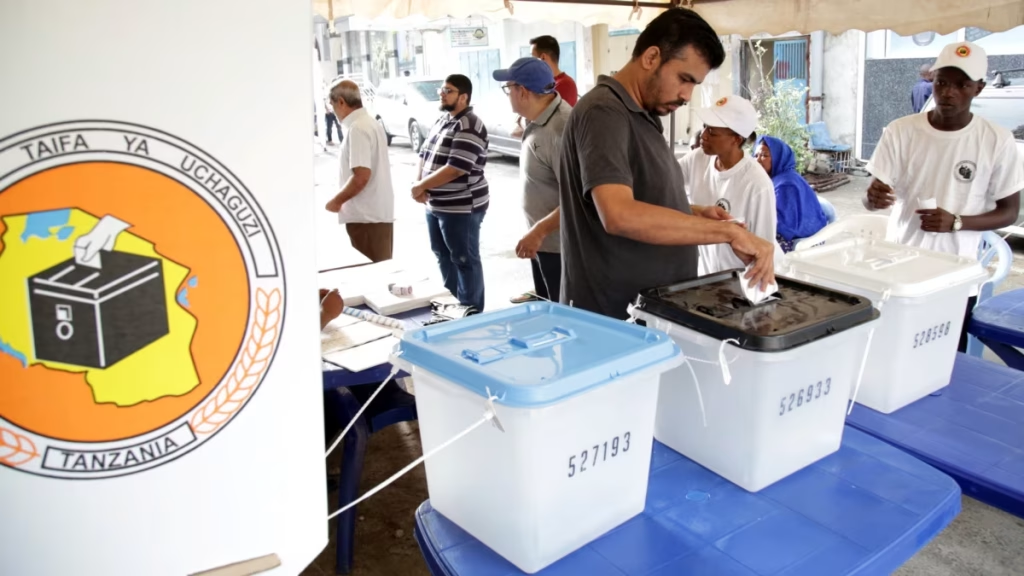Elections statistics from Tanzania’s local government, village, and hamlet elections reveal a surprising trend where the ruling party, Chama cha Mapinduzi (CCM), fields a significantly higher number of candidates than opposition parties, often running unopposed.
This situation paints a picture of uneven political competition driven by systemic electoral frameworks, the weaknesses of opposition parties, and CCM’s historical dominance.
This article explores whether CCM’s victories result from systemic manipulation or strategic calculations and raises questions about the future of democracy in Tanzania.
Election Statistics: The Emerging Picture
The data reveals the following:
- CCM fielded candidates in 80,430 positions, compared to approximately 12,280 candidates from opposition parties.
- CCM presented 30,977 candidates in village chairperson positions, with a significant proportion running unopposed.
- In 3,256 urban wards, CCM had over 1,000 candidates running without competition.
Opposition parties collectively fielded 5,879 candidates, accounting for only 38.51% of contested positions. These figures indicate CCM’s overwhelming advantage, particularly in constituencies with no challengers.
This suggests that CCM’s success is not solely a product of democratic strength but also systemic conditions favouring the ruling party.
What Explains This State of Affairs?
Control of the Electoral System: CCM’s longstanding rule has enabled it to exercise significant influence over the electoral framework:
Electoral Laws: Existing laws often appear skewed in favour of CCM, creating barriers for opposition parties, such as high nomination costs or restrictions on political gatherings.
Election Commission and Local Government Authorities (TAMISEMI): The Local Government Election Commission has frequently been criticised for lacking independence, raising concerns about the integrity of the electoral process.
Weaknesses of Opposition Parties
Opposition parties face several challenges that hinder their ability to compete effectively:
Resource Constraints: A lack of adequate funding, infrastructure, and resources limits their ability to field candidates nationwide.
Internal Conflicts: Leadership disputes within opposition parties reduce their capacity to unify and effectively contest CCM.
Strategic Deficiencies: Opposition parties often fail to devise strategies that appeal to rural voters, where CCM’s support base is strongest.
CCM’s Historical Dominance
CCM’s deep roots in Tanzania’s political history give it significant structural advantages:
Control of Local Government Levels: As the ruling party, CCM has an edge in influencing local governance structures, enabling it to mobilise its campaigns more effectively.
Rural Trust and Loyalty: CCM is perceived as the party of farmers and ordinary citizens in rural areas, securing a strong voter base.
Democratic Piracy or Strategic Calculation?
Analyzing the election data and systemic conditions suggests that CCM’s victory does not fully reflect a genuine democratic process. Instead, the playing field is fraught with challenges that hinder opposition parties from competing fairly.
This can be interpreted as systemic piracy, where laws and frameworks are designed to safeguard the ruling party’s interests.
Recommendations for Building a Competitive Democracy
Electoral Reform: Establish an independent Electoral Commission to enhance transparency and fairness in the electoral process.
Reduce the costs of contesting elections to encourage broader participation by opposition parties.
Strengthening Opposition Parties: Opposition parties must improve their organisational structures, resolve internal conflicts, and secure resources for effective campaigns.
Greater focus should be placed on rural campaigns to challenge CCM’s stronghold in these areas.
Civic Education: Citizens should be educated about their democratic rights and the importance of participating in elections.
Civil society organisations should prioritise civic education to expand voter awareness and engagement.
International Collaboration: International organisations and democracy-supporting entities should partner with opposition parties and the government to strengthen democratic institutions and practices.
The current state of local government elections presents a significant challenge to the development of democracy in Tanzania. While CCM’s victories may be attributed to strategic calculations, fair competition remains a cornerstone of a robust democracy.
It is imperative for all political stakeholders—government, political parties, and civil society organisations—to collaborate in creating a level playing field for elections. Without deliberate reforms, true democracy will remain elusive.

